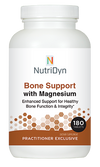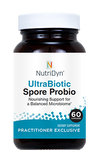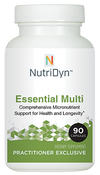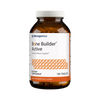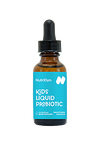Start reading food labels! Sugar is everywhere, even in places you wouldn’t expect such as yogurt and low-fat cheese. Beware of products that contain other kinds of hidden sugar such as corn syrup, honey, maple syrup, and molasses. One more warning, the font on the nutritional labels can be very small, so if you require reading glasses, bring them to the grocery store.
The decision to begin a very low-sugar, low simple-carbohydrate diet is complicated, as there is no agreement about what it entails. Diet choices can range from the extreme Keto diet to a modified low-sugar diet. Because there is no clear road map or agreement about what constitutes the “best” diet, I will share what I have learned.
Cardiologist Perspective of High Sugar Diets and how to eat Less Sugar
- News
- 06 Aug, 2021
Sugar is the 21st century nightmare, because it is everywhere — and in surprisingly high amounts in most foods. For example, most breads contain quite a bit of sugar, and skim milk contains 12 grams of sugar per cup.
 Low fat, plain Greek yogurt is very low in sugar. Add fresh blueberries or other berries but avoid fruit that comes premixed with the yogurt as it is full of sugar.
Low fat, plain Greek yogurt is very low in sugar. Add fresh blueberries or other berries but avoid fruit that comes premixed with the yogurt as it is full of sugar.
Before you consider adding any supplements to your family's diet, Dr. Direct4u.com strongly recommends consulting your Health Care Provider
The attached blog has been edited by, Reed Wilson, director of Health and Communications from this original site: https://www.inquirer.com/health/low-sugar-diet-what-to-eat-get-started-20210805.html from an article from:
by David Becker, For The Inquirer, Aug 5, 2021
I know this as I have been following a low-sugar diet for the last year and a half for health reasons. With the help of my wife, Sherri, we have been carefully looking at labels, and often paying higher prices to buy foods that are low in sugar.
There are many reasons to restrict sugar from your diet. It will help with weight loss, help control or even prevent type 2 diabetes, and may have a role in restricting cellular growth in certain kinds of cancers. The anti-inflammatory effects can help arthritis and many gastrointestinal disorders.
The decision to begin a very low-sugar, low simple-carbohydrate diet is complicated, as there is no agreement about what it entails. Diet choices can range from the extreme Keto diet to a modified low-sugar diet. Because there is no clear road map or agreement about what constitutes the “best” diet, I will share what I have learned.
Next, decide how you feel about incorporating fruit into your diet. Fruit contains natural sugars and carbohydrates. In a true and rigorous keto diet, fruit is restricted. The traditional keto diet has become very popular to promote weight loss, and an entire industry of keto products has surfaced. Keto-friendly chocolates, desserts, and foods, often under the name of Atkins (the original proponent of this diet) take up numerous shelves in grocery stores.
The problem that I have with a strict Keto diet is that it is not especially good for cardiovascular health (as it advocates foods rich in such saturated fats as red meat and bacon), these specialty products are often pricey, and many contain processed food.
-
Fruit, such as blueberries, strawberries, peaches, watermelon, avocados, and other seasonal fruits that have a low glycemic index, which have fewer carbs. (Restrict fruits with a high glycemic index, such as bananas.)
-
Low-sugar breads, with 1 to 2 grams of sugar per slice.
-
Water and flavored sparkling water. Limit dairy, fruit drinks, and soda because of the sugar content.
-
Meats, such as skinless chicken and turkey.
-
Fish, such as salmon, which is high in omega 3 fatty acids.
Here is a typical day on a low-sugar diet:
Lunch: Turkey sandwich with avocado, lettuce, and tomato with low-sugar bread (the label on the bread will specify the sugar content). Another good choice is a peanut butter and banana sandwich on low-sugar bread. Many kinds of peanut butter have a lot of sugar — get the kind that is 100% peanuts, with less than 2 grams per 2 tablespoons.
Dinner: Try to avoid dining out in restaurants. Often, the food is tasty because of the liberal use of sugar. I suggest grilled chicken or fish, vegetables such as broccoli or carrots, and a salad.
Snack: There are tasty snacks in the keto aisle of the grocery store to satisfy cravings but they often contain processed food. A healthier snack is an apple, pear, or peach. If you are willing to bake, there are many keto recipes available that use almond flour, coconut flour and artificial sweeteners.
I recognize that this diet is not for everyone and that it requires a lot of discipline. It helps to have a partner for food shopping, food preparation, and cheerleading. If you have type 2 diabetes, are overweight, or wish to follow an anti-inflammatory diet, it might be worth giving it a try. You will not be hungry, will almost certainly begin to lose weight, and just may give your overall health a boost.
I feel significantly better than I did a year ago. I have more energy and have been exercising regularly. It is hard to know how much of this is related to the anti-inflammatory effects of this diet, in addition to great medical care, but I plan to continue it. Bringing nutrition into your health care is important, and the potential positive effects should not be ignored.
David Becker is a board-certified cardiologist with Chestnut Hill Temple Cardiology in Flourtown. He has been in practice for more than 25 years.









